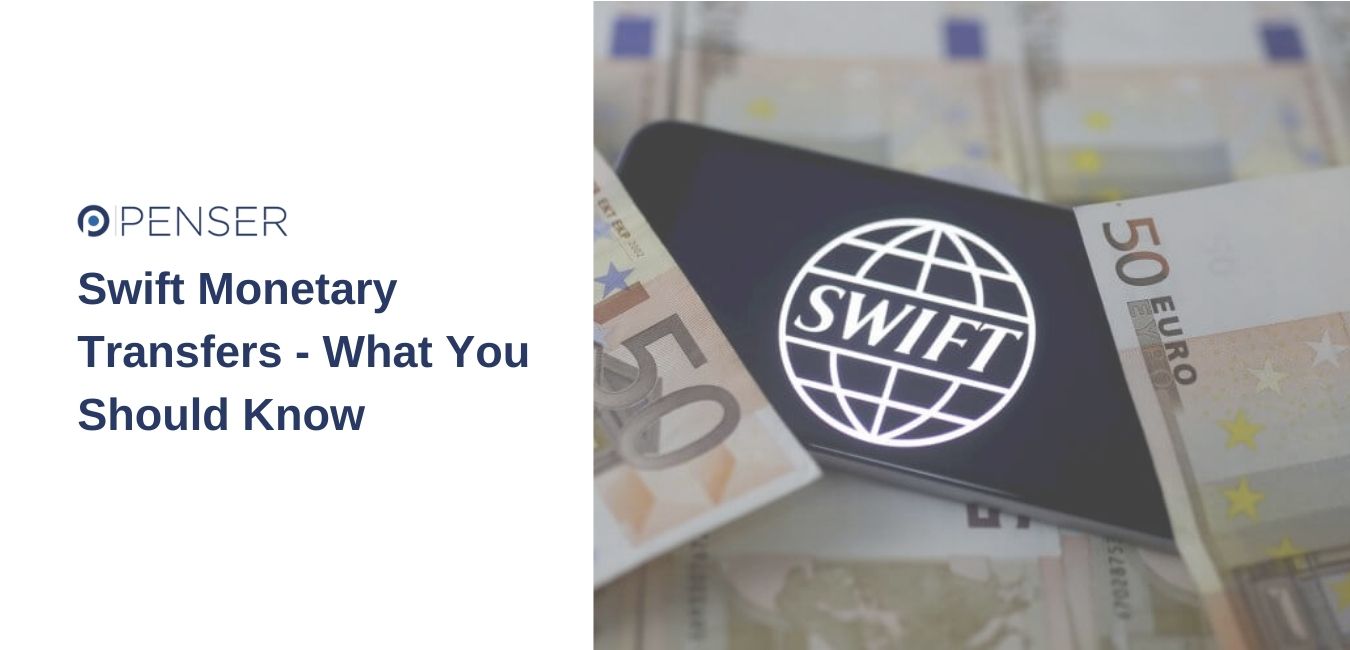
The ‘Society for Worldwide Interbank Financial Telecommunication’ or popularly known as SWIFT is currently trending on Google Search due to the political situation in the Eurasia region. Although, commonly used for making international/cross-border transactions, SWIFT is not a payment system but rather a communication system that facilitates payments.
So, what exactly is SWIFT, and how does it work?
What is SWIFT and how does it work?
SWIFT is a messaging system used to execute monetary transactions between countries. It is used by more than 11,000 financial institutions (FIs) and companies across 200+ countries worldwide.
Every FI and bank associated with the SWIFT network is assigned a 8 to 11 character unique code. The first 4 characters represent the bank or financial institution, followed by 2 characters that represent the country. The next 2 codes represent the location, and the final 3 characters stand for a specific branch of the bank or FI in that location. This SWIFT code works as an identification code for each bank or FI, which enables banks and FIs to make transfers safely, quickly, and effortlessly.
For example, when an individual in the USA wants to send money to someone in the UK, they can do so either by going to their bank’s branch or execute an online transaction. In order to execute the transaction, they will need the UK individual’s account number and the bank’s SWIFT code.
All the banks and FIs, that are part of their network, are also part of the nostro/vostro account (Yours/Ours Account). In the above case, the U.S. bank’s balance will decrease by the transferred amount while the UK bank’s balance will increase. There is no physical transfer of money, but simply a change in the respective bank’s account balance.
Key Information To Know About SWIFT
- As mentioned earlier, contrary to what many people think, SWIFT is not a payment system, it is a messaging system which enables quick and safe transfer of money globally. So, even if it is a cross-border transaction executed by the person using their computer or through a bank’s branch, a SWIFT code is essential to execute the transaction.
- It is the most popular messaging service for payments, recording an average of 42.1 million messages per day in January, 2021.
- Over 56% of all international payments on SWIFT are now sent via SWIFT gpi (Global Payments Initiative), representing more than $300 billion in daily value.
- SWIFT messaging system is not only used by banks to transfer money but by other financial institutions, such as: brokerage institutes, trading and clearing houses, foreign exchange and money brokers, depositories, exchanges, corporate business houses, asset management companies, and several other institutions that deal with money.
- Transactions executed using SWIFT are considerably safe and easier to track. Due to the ‘Unique End-to-End Transaction Reference’ (UETR) code, customers can check the location of their funds in real-time, and confirm when the amount has been received. SWIFT-associated transactions are easily trackable making it a reliable method to avoid fraud and money laundering to a significant extent.
- SWIFT’s KYC registry database also helps financial institutions to stay compliant with international sanctions, Know Your Customer (KYC) regulations, and Anti-Money Laundering (AML) regulations.
- A major drawback concerning SWIFT is that it is expensive. A SWIFT-associated transaction can cost anywhere between US$35 to US$125. Furthermore, complex transactions can take longer than 3 days to complete. Due to this problem, fintech companies are considering blockchain technology to execute financial transactions since each transaction executed on blockchain is recorded on an immutable ledger, similar to how the Nostro/Vostro account works but cutting down various additional costs.
Having said that, SWIFT has been enabling cross-border transactions for over decades now. However, it is not hundred percent safe from money laundering in the case of corporate consumers. As there can be multiple inter-connected companies, making it difficult to identify the ultimate beneficial owner, which or who could be based in a tax-haven, or a BIS-sanctioned country, such as: Iran, North Korea, Syria, and others. Given the high costs, and certain security concerns, blockchain technology could become a viable substitute for SWIFT in the near future, if executed at scale.
About Penser
Penser is a fintech and payments specialist consulting firm, based in the UK. As the digital payments sector continues to evolve, Penser tries to keep its clients and other businesses updated with the ever-changing world of financial technology (fintech) and digital payments.
We have experience working for clients in the digital payments, digital banking, and mobile payments sectors. We have some of the renowned companies as our clients.
Our services include:
- Conducting Commercial & Technical Due Diligence to guide business investment decisions.
- Strategic Planning to drive growth and scale business.
- Digital Transformation of businesses
- Assisting with restructuring and turnarounds to improve business operations and tackle financial challenges
Contact us at hello@penser.co.uk to learn more about how we can help you transform and grow your business.
